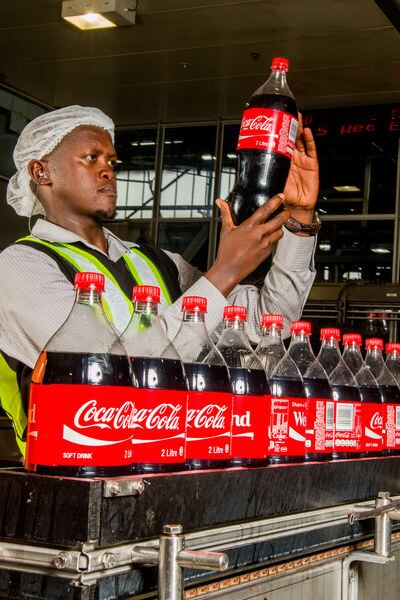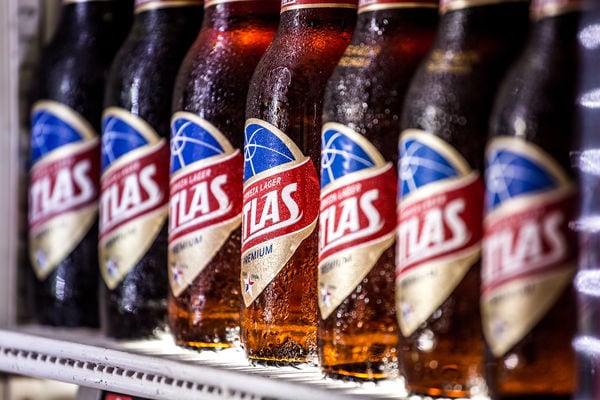In November, beer and soft drinks giant SAB said that poor weather in the central provinces during the peak summer months was responsible for a 3% lager volume decline; and in its trading update for Q3 ending December 31 yesterday the brewer said this continued to affect its business in the country.
The group reported Chinese group NPR (net producer revenue) down 7% driven by a volume decline of 9% - with double-digit declines in northeast and central provinces hit by continuing adverse weather.
However, a SAB Miller spokesperson told BeverageDaily.com that the group remains positive about its prospects in the country, believing that it will soon revert to a "normal state of play".
ANALYST INSIGHT - PHIL CARROLL, SHORE CAPITAL: "We believe there was a lot made of the volume decline in lager in SAB’s Q3 performance – it reported an organic decline of 1% – with the key reasons cited weak performances in the US and China. The 9% volume decline in China is disappointing but we believe its materiality to the group’s financial performance is limited. In FY2013A we believe China as a market accounted for less than 3% of group EBIT."
SAB explains poor Chinese performance
“There was a very poor summer, much wetter and colder than usual, and that had a massive impact on beer sales. Sales didn’t come through, distributors were left with a lot of stock which hadn’t sold, and so coming into Q3 they were very overstocked. They didn’t need to buy more, and that has a knock-on effect," the spokesperson said.
“As ever, we would be cautious about a forward prediction, but remain confident in the long-term about China."
Overall, SAB's Asia Pacific group NPR declined by 2%, with a beverage volume decline of 7%. However, the group says this was offset in part by NPR per hl growth of 6%, showing the changes in geographical mix.
'Strengthened ties with Coca-Cola' in Africa
Beverage volume growth of 4% saw group NPR in Africa grow by 7% in Q3. In particular, Nigeria NPR growth was up 33%, thanks to a volume growth of 27%, “supported by market execution and incremental capacity.” (The group announced a $110m investment in the country at the beginning of last year to expand capacity.)

South Africa’s Castle Lite brand continued to show strong growth, while group NPR in the country grew 6% thanks to positive pack and brand mix in lager.
Tanzania was hit by a 9% decline in lager volumes, due to excise and pricing conditions last July. However, the group NPR for the country still grew by 5% thanks to growth in wine and spirits.
Further African momentum will come from the formation of Coca-Cola Beverages Africa (CCBA) announced in November, which will combine bottling operations for non-alcoholic RTD beverages from The Coca-Cola Company, SAB Miller, and Coca-Cola Sabco (as announced in November) “In terms of the way it will change things in Africa: it gives us a much enlarged soft drinks platform, and strengthens our ties with Coca Cola,” the SAB Miller spokesperson said.
Analyst 'encouraged' by LATAM growth
Strong trading in the busy December period helped lager volumes in Colombia, which suffered overall with rising inflation. SAB Miller attributes the 1% drop in lager volume performance to a change in consumer spending patterns, with pressure on disposable income and rising levels of household debt.

However, the Colombia group NPR still grew by 5%, with beverage volumes increasing 1%. This was thanks in part to growing sales of the mainstream brand Aguila Light beer and premium Club Colombia range.
In Ecuador, group NPR grew by 8% thanks to the mainstream brand Pilsener Light and price increases from last year.
Across Latin America, group NPR grew by 5% in Q3 with beverage volumes up 2%, and non-alcoholic malt brands pushing soft drink volumes up 4%.
"The positive aspect that we did take from the statement was the still robust growth being delivered by Africa and Latin America, albeit at a lower run rate than at the H1 stage but still overcoming a number of headwinds," Shore Capital analyst Phil Carroll wrote in a note this morning.
"We were also encouraged by the improvement in Australia and sales growth in Europe (despite the likely negative mix effect)," he added.
